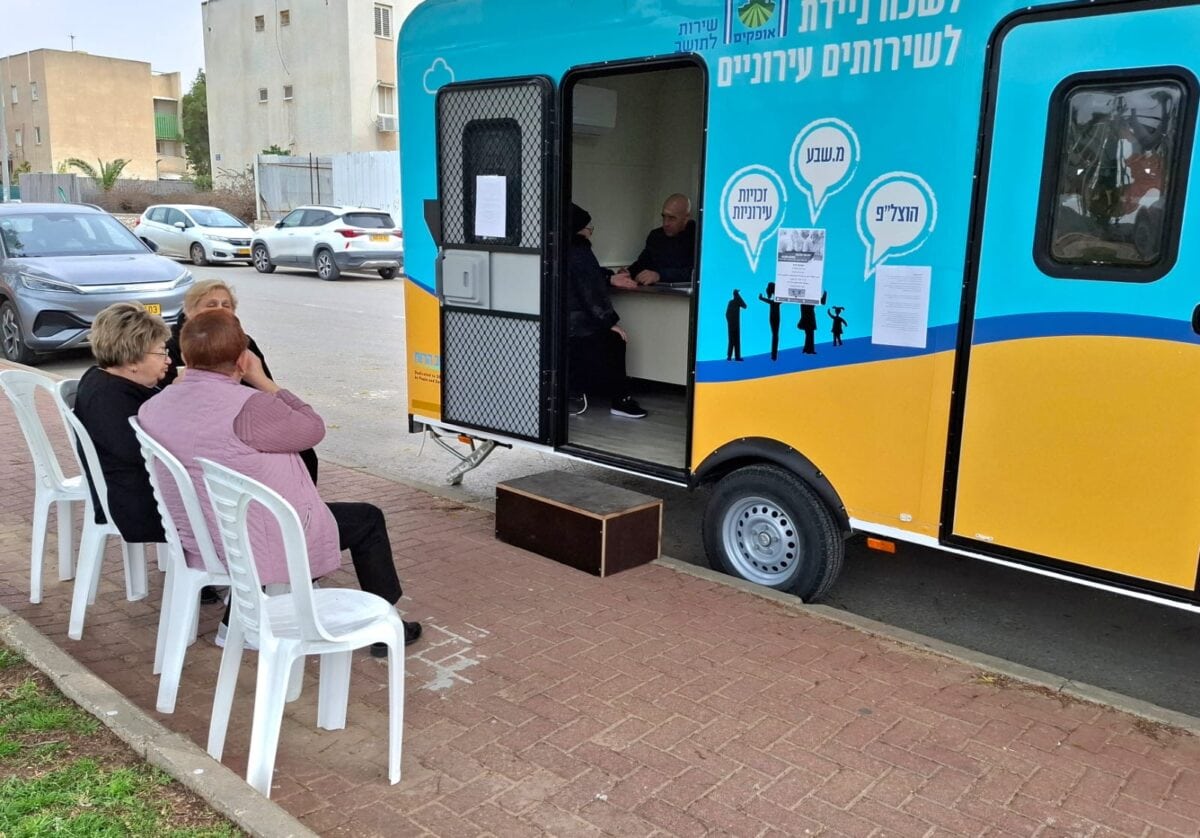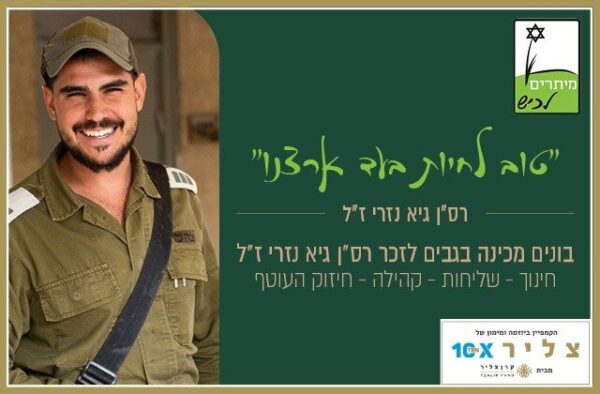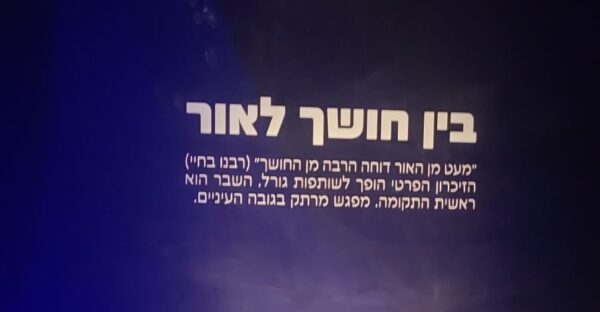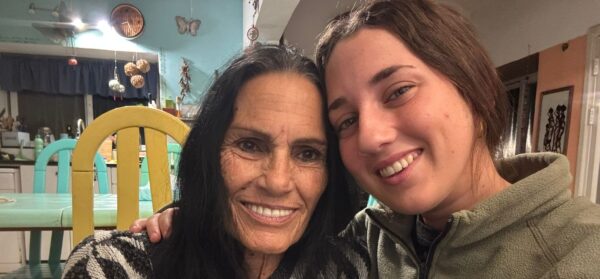Volunteers Driving Legal Access and Empowerment in the South
From mobile legal clinics to bureaucratic breakthroughs, meet some of Elul’s Shnat Sherut 50 Plus volunteers making rights accessible for all in Israel’s south.
In southern Israel, where residents face the overlapping challenges of displacement, trauma, aging, and bureaucratic overload, volunteers are emerging as unlikely champions of justice. They’re not in courtrooms or parliament buildings – they’re in caravans, cafés, and back offices, quietly ensuring that no one is left behind when it comes to legal rights and access to services.
These are the volunteers bringing law and dignity within reach.
Justice on Wheels: A Mobile Legal Clinics in Ofakim
In Ofakim, B.S. has become a trusted source of legal clarity, particularly for elderly residents. Working through the Resident Service Division of the municipality and in collaboration with the Ministry of Health, he delivers workshops on legal planning for old age – including guardianship, power of attorney, and inheritance tools.
But his most innovative move? Bringing legal support directly into neighborhoods via a mobile caravan clinic. Originally used for other municipal services, the caravan now serves as a legal consultation hub. Residents come with paperwork and questions – and leave with answers, referrals, and action plans.
B.S. also partnered with Marva, an Israeli nonprofit, to formalize his role. He’s now insured as a lawyer-volunteer and is seen as their representative in the city – offering continuity, privacy, and trust.
“People don’t just need information,” he says. “They need to feel that someone is on their side.”
Bridging the Bureaucracy and the Power of Persistence
In nearby Eshkol, Aviva operates far from the spotlight – but with enormous impact. When she noticed an untouched stack of grant paperwork from the Ministry of Social Equality, she processed it herself. The result? A 200,000 NIS grant approved for community use.
And it wasn’t a one-off.
Time after time, Aviva has helped individuals claim unreceived benefits – pensions, entitlements, and municipal support – simply by completing paperwork, asking the right questions, and following through. She doesn’t consider herself a caseworker, but in practice, she fills a crucial gap in the system.
She also supports rights realization through her close ties with Neve Eshkol and Clalit, often stepping in when social workers or administrators are too stretched to help.
Education as Empowerment: A Role Beyond the Classroom
A.K., best known for his volunteer work as a high school math teacher, uses his trusted role in the community to encourage adults to reclaim their right to education. Whether it’s through night classes, Shas programs, or municipal adult learning opportunities, he helps people understand that support exists – and that they deserve it.
His advocacy often includes helping residents apply for learning grants or fee waivers, and guiding them through systems that may seem intimidating or obscure.
A Quiet Revolution in Rights Access
What unites B.S., A.V., and A.K. isn’t legal training (though one of them has it). It’s patience, persistence, and a belief in the idea that rights only matter if people can actually use them.
They are translators of systems, navigators of paperwork, and advocates for the unseen. In communities often overlooked by centralized government, they restore something critical: confidence in the process.



